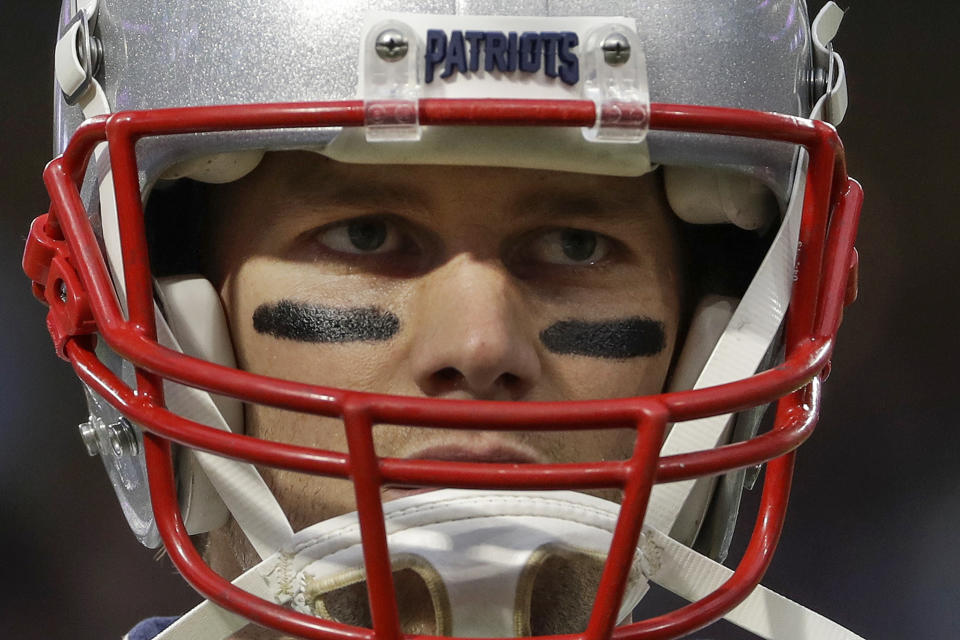Tom Brady on kneeling during anthem: 'You have to have respect for everyone's opinions'
In 2015, Tom Brady was famously spotted sporting a “Make America Great Again” hat in his locker, marking the campaign slogan for then-presidential candidate Donald Trump.
When Trump dismissed leaked audio recordings of his bragging about grabbing women by their genitals as “locker-room talk” in 2016, Brady ducked questions about whether that was indeed how men talked in locker rooms.
He explained his relationship with Trump in an interview with Boston’s WEEI when asked about why he avoided the question.
“I met him probably 15, 16 years ago,” Brady said. “We’ve played golf together many, many times and I’ve always had a good time with him. He’s been a friend of mine. He’s supported our team. He’s supported the Patriots.”

Brady has repeatedly avoided directly addressing Trump as the President has used his office to disparage social justice protests by NFL players led by Colin Kaepernick kneeling during the national anthem.
“I’m not getting into any of that,” Brady said last September when asked about Trump’s claim that it’s not acceptable for players to kneel.
On Monday during a live interview with Jim Gray at the Milken Institute’s Global Conference in Los Angeles, Brady appeared to change his tune, if ever so slightly, on his public response to players kneeling.
“You have to have respect for everyone’s opinions,” Brady told Gray when asked about players kneeling. “Sports for me has been the most unifying part of my life. Never forget that.”
While he used the standard NFL quarterback-speak strategy of neglecting to say anything truly interesting or controversial, he also avoided ducking the issue as he has in the past. The fact that he acknowledged that the people kneeling deserve respect is another step from the Patriots organization in moving away from what was once a buddy-buddy relationship with Trump.

Owner Robert Kraft, who has discussed a deeply personal relationship with Trump and awarded him a Super Bowl ring, has publicly and privately challenged Trump’s policy and attitude toward social justice and race issues.
Last week, The New York Times reported audio recordings from last October’s reportedly contentious meeting between owners and players about the protests during the national anthem and quoted Kraft with harsh criticism of the President.
“The problem we have is, we have a president who will use that as fodder to do his mission that I don’t feel is in the best interests of America,” Kraft reportedly said. “It’s divisive and it’s horrible.”
It was a much more candid version of Kraft’s public statement criticizing Trump’s tone on the issue last September.
More recently, Kraft has been on the front lines supporting rapper Meek Mill during his imprisonment and calling for criminal justice reform, the exact kind of issue that NFL player protests have sought to shed light on.
While Kraft has repeatedly broken step with Trump in regards to his criticism of the NFL, Brady appears to be making tentative steps in the same direction.
As Brady approaches the end of his career, he has shown more signs of letting fans in on his thoughts and personal life. Maybe, one day, when Brady has nothing to lose, we’ll be privy to his truly candid thoughts on the social climate around today’s NFL.
More from Yahoo Sports:
• Racial slurs mar youth baseball game in Chicago
• Cardinals ‘shocked and saddened’ by fatal shooting near stadium
• Brady all but ends retirement speculation at global event
• Jeff Passan: How 7 teams personify baseball’s ugly problem


